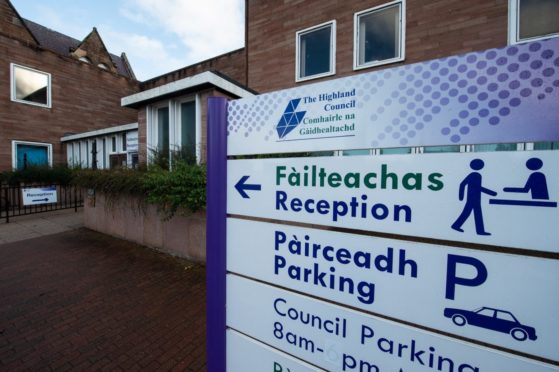A report on the impact of Covid on Highland Council’s staff and services has prompted fears for long term economic growth in the region – and for the council’s very sustainability.
The report, by executive chief officers Kate Lackie and Malcolm Macleod, sets out starkly the harms and risks of the pandemic.
They describe the ‘four harms of Covid’ as being the direct health impact of the virus, other health impacts, societal impacts and economic impacts, and say these pose a significant risk to the council’s delivery of core services, to the health and wellbeing of staff and the wider public.
“Risks also arise from the uncertain trajectory of the pandemic which makes it difficult to plan ahead and requires multiple contingencies to be considered and regularly reviewed.”
They highlight business grant distribution work carried out by 20 staff moved from other areas as an ongoing priority, and say extra winter gritting on pavements, along with vaccination centres requiring additional attention has reduced the road team’s ability to carry out other work.
Supervision on construction sites has been reduced, they add, with minimum staffing levels in place on operational sites to mitigate the risk.
The officers list the statutory services which are under pressure and say they are being managed ‘pragmatically’ to adhere to the law.
These include site and laboratory sampling and testing, flood risk management, watercourse assessments , contract administration – tendering/awards, bridge assessments , tourism services , affordable housing development programme, commercial portfolio new sales/leases, roads operations, limited or no site visits, supervision and enforcement, non-urgent road repairs and maintenance, parking enforcement .
The officers recommend reducing or delaying a number of non-statutory services to cope with the pressures, including delaying the roll-out of area-based energy schemes, delaying the design of capital schemes and reducing lease and rent negotiations.
The situation has alarmed Highland economist Tony Mackay.
He said: “The proposals in the report will certainly have an adverse impact on any revival in the Highland economy.
“That is particularly true of delays to development plans, affordable housing developments and the proposed area-based energy schemes.
“These delays may not matter much in the short run but if they last longer than three months, say, then there could be more setbacks to any economic recovery.
“The council’s spending is very important for the local construction industry which will be vital in that recovery.”
For Lochaber councillor Denis Rixson, the report brings into the open serious issues so far unspoken.
He said: “This is an inevitable consequence of Covid, and one which has never really been articulated.
“It’s a difficult time for council, because on the one hand we’re trying to perform our statutory functions and on the other hand we’re being used by the Scottish Government as the conduit to distribute the business grants and roll-out scheme.
“It’s difficult to do that with the same number of personnel while like every other branch of society we have people absent and shielding.
“So it’s fair to ask how sustainable this is.
“We have lots of really good people running around frantically trying to do three jobs at once, and there are risks to that, we can’t do everything.
“I don’t believe in deluding the public, we have to prioritise what moves to the front of the queue and what moves further down.
“We will do everything statutory that we have to do, but we’ve got to look at all the things we don’t have to do.”
